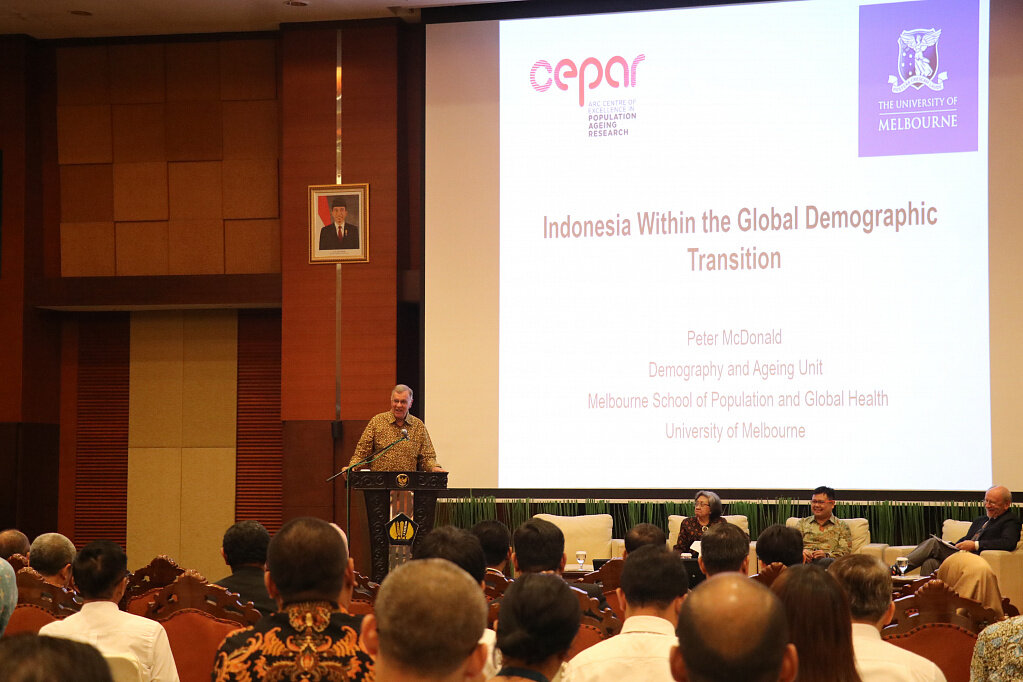High-Level Policy Dialogue 2019
Demographic change, economic transformation and fiscal implication
ANU Indonesia Project and the Indonesian Ministry of Finance (MoF) organised the 2019 Indonesia-Australia High Level Policy Dialogue (HLPD) in Jakarta on 29 April 2019. This year’s the focus was on demographic change, economic transformation and the fiscal implications and the discussion was divided into three broad topics:
overview of demographic and economic transformation
Indonesia’s productivity and challenges
fiscal implications and responses.
The HLPD was opened by Minister of Finance HE Sri Mulyani Indrawati and the Australian Ambassador to Indonesia HE Gary Quinlan. Former Vice President Dr Boediono delivered the keynote remarks on policy making process in Indonesia in the last two decades. Speakers and chairs include Professor Hal Hill, Dr Chris Manning and Dr Arianto Patunru, all from ANU, Professor Suahasil Nazara and Dr Hidayat Amir from the Fiscal Policy Office, MOF, Professor Peter McDonald from the University of Melbourne), Professor Sri Moertiningsih Adioetomo from Universitas Indonesia, Dr Daniel Suryadarma and Dr Asep Suryahadi from SMERU Research Institute, Associate Professor Riyana Miranti from the University of Canberra, Dr Dionisius Narjoko from ERIA, and Mr Darren Kennedy from The Treasury. Around 70 people attended this Dialogue that is in its 13th year. Most participants were from the government and there were selected academics from state universities around Indonesia.
Dr Boediono addressed some of Indonesia’s longer term development challenges, stressing on the need to avoid a possible ‘demographic trap’ of getting old before rich. Session 1 discussed the importance of a ‘paradigm shift’ in order to take looming demographic challenges more seriously. Furthermore, demographic projections need to be married with education outcomes, since demographic bonus is sully operative only in the case of well-educated workforce. In Session 2 the speakers agreed that increased productivity is the key to long term economic growth and rising living standards. Unfortunately Indonesia’s productivity performance lags most of its peers. The panel pointed that the operation of labour market is central to this outcome. They also noted that Indonesia has experienced a rapid shift out of agriculture and discussed its policy implications. Session 3 started with Professor Nazara’s assessment of the effectiveness of social assistance spending for the poor in Indonesia. He showed that over the period 2012-17, targeting has become increasingly effective and progressive in impact, especially the PKH program. The session ended with some comparative perspective from Australia’s experience with age and pension policies.
Prior to the event, the Australian Deputy Head of Mission to Indonesia, Allaster Cox, hosted a reception for the HLPD delegation.
Professor Hal Hill reported the communique to Minister Sri Mulyani on the next day (30/4), enjoined by Ambassador Gary Quinlan.




















